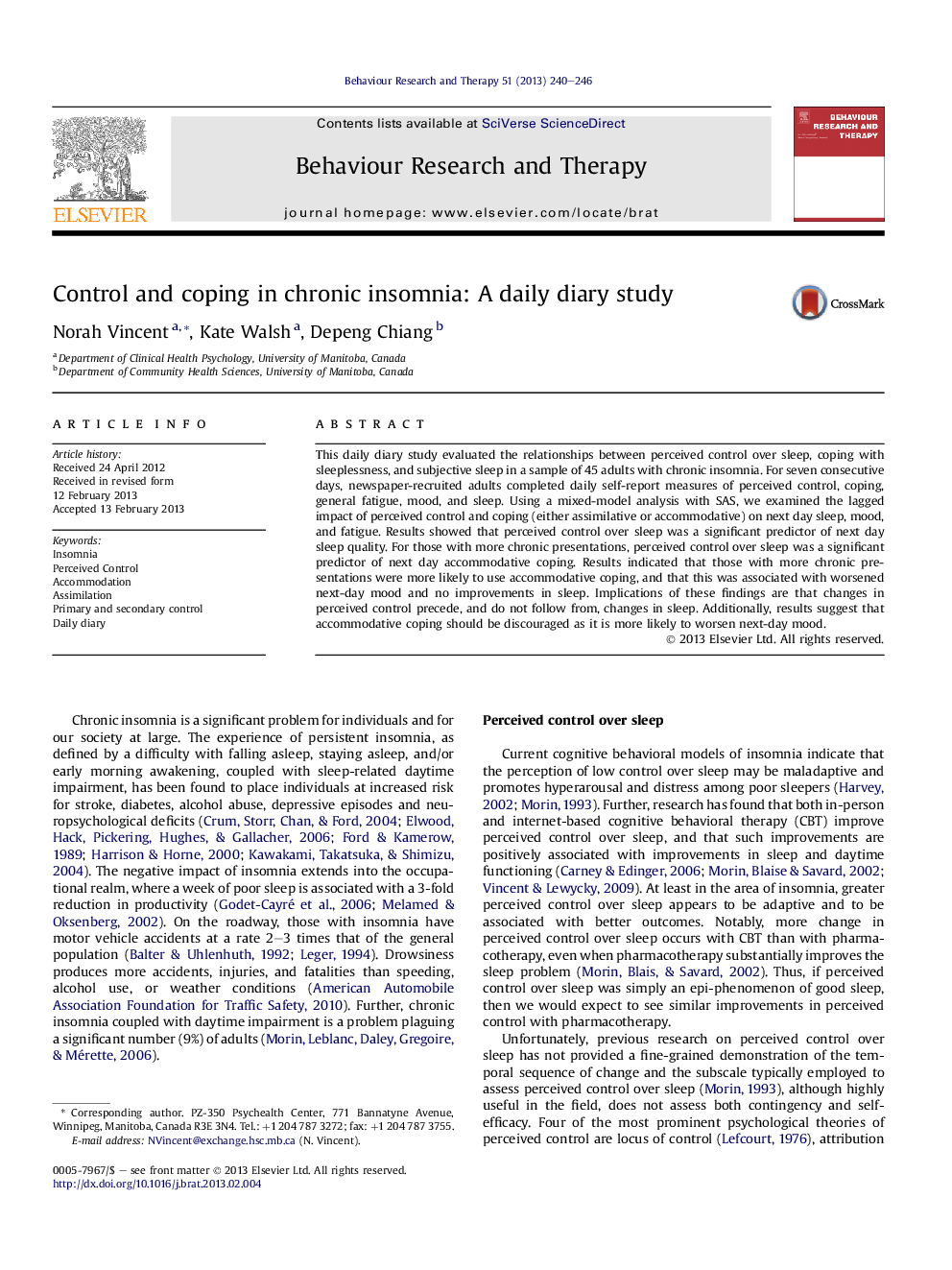| Article ID | Journal | Published Year | Pages | File Type |
|---|---|---|---|---|
| 901882 | Behaviour Research and Therapy | 2013 | 7 Pages |
This daily diary study evaluated the relationships between perceived control over sleep, coping with sleeplessness, and subjective sleep in a sample of 45 adults with chronic insomnia. For seven consecutive days, newspaper-recruited adults completed daily self-report measures of perceived control, coping, general fatigue, mood, and sleep. Using a mixed-model analysis with SAS, we examined the lagged impact of perceived control and coping (either assimilative or accommodative) on next day sleep, mood, and fatigue. Results showed that perceived control over sleep was a significant predictor of next day sleep quality. For those with more chronic presentations, perceived control over sleep was a significant predictor of next day accommodative coping. Results indicated that those with more chronic presentations were more likely to use accommodative coping, and that this was associated with worsened next-day mood and no improvements in sleep. Implications of these findings are that changes in perceived control precede, and do not follow from, changes in sleep. Additionally, results suggest that accommodative coping should be discouraged as it is more likely to worsen next-day mood.
► Perceived control over sleep is a significant predictor of next day sleep quality. ► For those with chronic insomnia, perceived control over sleep is a significant predictor of next day accommodative coping. ► The use of accommodative coping is associated with worsened next-day mood and no improvements in sleep.
